Урок английского языка в 8 классе
по теме «Защита окружающей среды. Protection of environment»
(Новый учебник английского языка для российских школ –
авторы Афанасьева О. В., Михеева И. В.)
Задачи урока:
проконтролировать умения и навыки учащихся вести беседу, высказывая свое мнение по теме;
прививать школьникам любовь и уважительное отношение к природе.
Оборудование урока: фотографии, репродукции картин с изображением природы, аудиозаписи.
ХОД УРОКА
Начало урока. Приветствие. Введение в тему урока.
Т: Good afternoon. Today we are going to discuss the problem of environmental protection. Children, do you like our village? Do you want to see our village clean and tidy? You know that people all over the world are worried about our environment. The issue of ecology is important. Our village is nice and beautiful. It is large. There are some ecological problems in our area. What are they?
P1: Flowers are pulled out.
P2: Litter is left.
P3: The water is polluted.
P4: Fires are started. Trees are cut down.
P5: Birds and animals are frightened.
P6: The air is polluted.
T: You are right. All these problems are very serious and important. These problems are global; I want you to discuss them.
Учащиеся высказывают своё мнение по теме:
P1: I want to be first. Paper comes from trees. If we don't recycle paper, a lot of trees are destroyed. The countryside is spoiled. People cut down trees. Fires are started. We like flowers very much, but people shouldn't pick wild flowers. If trees are destroyed and people pick flowers and grass, birds and animals may become extinct. People, don't harm plants!
P2: We throw away too much and in the wrong place. We leave litter near the river. The water is polluted and the fish in the river die. Local industry pours its waste into the river Moskva. The cleaning structures don't work well. People, help to keep all water clean!
P3: Many years ago the Moskva was deep and clean. Peter and I sailed on the river. People used to fish a lot. Today people like fishing too. But some things that they use for fishing kill animals. People, protect animals and fish!
P4: We should keep our village tidy. It is our home. We must take care of it for ourselves and for future generations. There are some ponds near our village. A lot of children from our school swim in them. It's wonderful to swim in the pond on a hot summer day. Children, clean ponds!
P5: You can see different kinds of trees and flowers in the meadows near our village. Each of us must do everything possible to protect nature. Children, plant trees and flowers!
P6: There are many animals and birds in our village. We should not make unnecessary noise. If we don't keep to public paths in the countryside, birds and animals are frightened. We are proud of our classmates who made some bird feeders this winter and filled them with food. Children, take care of birds and animals!
P7: Every spring 1 see rubbish near our village. 1 thinks that our country people do it. They throw away old things, paper, clothes, toys, bottles and plastic bags. Maybe they' don't know the 3R rules: reduce, re-use, and recycle. It's a pity! People, take litter home!
T: Children, let's play. .
Проводится игра "The Rag Man". (Дети изображают старьевщика с мешком):
The rag man comes today,
He sings his song this way:
Old bottles, paper or rags,
Old bottles, paper or rags!
I want your paper and rags!
Old bottles, paper or rags!
T: Mr. Ivanov, the President of the Clean up The Countryside Society gives you some information and suggests some important rules to protect environment. Listen to him and fill in the answers to the questions. (Работа по карточкам)
- I'm Mr. Ivanov, the President of the Clean up the Countryside Society. You know that polluted air, water and land are harmful to plants, animals and people. As a result of our investigations we have found out that our village is polluted. 60% of air pollution is caused by different means of transport: cars, trucks, and buses. The local industries pour their waste into the river Moskva. Modern lifestyle, in which people do little exercise, use cars instead of walking, watch television for many hours and work with computers, is leading us to catastrophe. We have to do something about this. Let us set up our own "Clean up the Countryside Society for Children" (CCSC). Its members will take part in actions for cleaning up, tree-and flower planting, protecting wildlife, and organizing outdoor activities.
1. What pollution do we have in our village?
2. What is the result of their investigations?
3. What is leading us to catastrophe?
4. Does our river suffer from pollution?
5. What does Mr. Ivanov suggest?
6. What will its members do?
Образец карточки:
1) ..., ..., ... (air, water, land) pollution are harmful.
2) ... (60%) of the air pollution is caused by different means of transport: cars, trucks, buses.
3) Let us set up our own C... up the C... S... for C... (Clean up the Countryside Society for Children).
T: We've already spoken about ecology and importance of keeping the environment clean. Pollution is getting worse and worse, there is always hope.
P1: I think the idea of starting up a Clean up the Countryside Society for Children is great.
P2: We would like to join the CCSC.
P3:We suggest some important rules to protect the environment.
P4: We could design posters telling people about ecological problems.
{Учащиеся работают в группах по 3 человека, продумывают содержание рисунков и делают подписи к рисункам. Смотрите рисунок 2)
A. Do not pick wild flowers.
B. Do not litter the ground with cans, paper and bottles.
C. Do not frighten animals.
D. Do not harm plants.
E. Feed birds and help them.
F. Plant trees and flowers.
G. Recycle used materials such as metal, bottles and paper.
H. Clean rivers and springs.
T: Our short discussion is over. I'm sure that you're real E F G H friends of our planet. We all must do what we can to keep the air, water and land clean.

Обобщающий урок в 7 классе по теме
«Путешествие по России. Летние каникулы.
Travelling. Summer holidays».
(Новый учебник английского языка для российских школ –
авторы Афанасьева О. В., Михеева И. В.)
ЦЕЛИ:
1) активизировать речемыслительную деятельность учащихся;
2) развивать монологическую и диалогическую речь;
3) закрепить лексический материал по теме "Путешествие";
4) развивать языковую догадку, навыки проектной работы, навыки аудирования, творческие способности учащихся;
5) прививать интерес к предмету;
6) формировать навыки работы в коллективе;
7) воспитывать межличностные отношения.
Задачи:
Учебные: обучение рецептивным и продуктивным видам речевой деятельности; формирование и развитие коммуникативных умений учащихся на основе языковых, лингвострановедческих и социокультурных знаний, навыков: умения воспринимать на слух и понимать краткие сообщения, умения письменно оформлять несложную информацию, умения вести диалог на заданную тему, умения делать краткие сообщения на заданную тему, умения высказывать свое мнение и аргументировать его.
Познавательные: знакомство с реалиями англоговорящих стран путем сравнения имеющихся ранее знаний и понятий со знаниями о своей стране, формирование более глубокого осознания учащимися родной культуры; расширение эрудиции учащихся, их лингвистического и общего кругозора.
Развивающие: интеллектуальное и эмоциональное развитие учащихся; развитие языковых и познавательных способностей, ценностных ориентации, готовности к коммуникации.
Воспитательные: формирование у учащихся уважения и интереса к своей стране и другим странам; воспитание культуры общения; воспитание интереса к учению и формирование познавательной активности; формирование потребности в практическом использовании языка в различных сферах деятельности.
Ход урока
| 1. Начало урока. Организационный момент. Teacher: Good morning, children! How are you? Children: We are fine. Thank you. T: I’m very glad. Let’s begin our work. |
| 2. Речевая зарядка по теме. T: Choose and read the words on the topic “Travelling” (Приложение 1: Choose and read the words on the topic "Traveling". Who is the champion? Wind, ship, sleeper, catch the train, miss, tired, carriage, booking-office, change, voyage, journey, fantastic, nearly, excellent, strong, weak, perhaps, see off, arrive, flight, rucksack, business
class, sad, excursion, kind, party, platform, explain, single, lorry, return, fare, plate, ticket, tourist class, lesson, hiking, heavy, luggage, fast, suitcase, shop, railway station, street, fly, airport, find, travel, tourist class, carriage, comfortable, team, to look after, plane.
|
| 3. Монологические высказывания учащихся по теме. T: Before the traveling people pack the bags, suitcases. What do you put into your bag? The words writing on this card help you to compose your story. (Приложение 2: At Home To pack, to have a lot of, to forget, to book, an upper berth, a lower berth, to miss the train, to go by bus, heavy suitcase, to get up at time, take necessary things, blouse, trousers, jacket, paper, pen, toothpaste.
|
| 4.Учебный разговор в режиме TP1, P2, P3 по теме. T: Some people prefer traveling by train, others-by ship. And what about you? Учащиеся высказывают свое мнение, на чем они любят путешествовать.
|
| 5. Музыкальный момент. T: Now let’s sing the song “My bonny lies over the ocean”. |
| 6. Работа в парах. Составление диалогов. T: Usually we buy tickets beforehand. We go to the booking-office. Compose the dialogue between the passenger and clerk. The words writing on this card help you. (Приложение 3: At the Station: To see off, to see to the luggage, to look up the time-table, a carriage, a compartment, a seat, to come along, the train, to start, to get on the train, to say good-bye, a pleasant journey. At the Booking-office: Can I have a ticket to, what's the fare, a first class sleeper, a second class sleeper, a through train, to change, a fast train, a slow train, buy ticket, leave.
T: Usually we travel during our summer holidays with our parents. But holidays finish very quickly. Children come back and they have a lot of impressions about the rest. Share with your summer impressions! P1P2, P3P4. Примерное содержание диалогов: A: Hello! Glad to see you after the summer holidays again! You look so sunburnt! Where were you in the summer? B: Oh, we had very nice holidays! We went to the Black Sea. It was for the first time in my life, you know, because usually we spent our summer holidays in the country. A: Really? How nice, indeed! How did\you get to the south? B: We went by car; it took us two days to drive there. We saw a lot of picturesque places on the way. But the most beautiful thing was the sea itself. How happy we were when we saw it! A: Did you enjoy swimming in the sea? B: That was wonderful! The weather was hot, over 30 degrees above zero, and the water was very warm. I learned to swim well at last. My Dad taught me to swim. "All things are difficult before they are easy", as the proverb says. A: My congratulations! But at what place of the seaside did you stay, I wonder? В: It was in the Crimea, near Yalta. A: How was the beach? B: It was sandy, with pebbles and shells. I collected some of them. We lazed in the sun, went water-skiing or water-cycling. A: Did you go sightseeing? As far as I know the Crimea is rich in attractive places of interest. B: Sure, we did a lot of sightseeing and we took pictures of all the places. I'll show the photos to you as soon as we have the film developed. Второй диалог: A: Hello! Glad to see you after the summer holidays again! B: I see you're suntanned as well. Did you have a rest at the seaside? A: No, not this summer. I was at a camp in the country, not far from Moscow. There were green fields and forests around it. The place was very picturesque! We went for long walks in the forest, gathered berries, enjoyed the birds' pretty songs and watched insects in the long grass. B: Did you make new friends at the camp? A: Yes, there were a lot of nice boys and girls. We had a good time together. We played games, danced, talked about different things. But I liked to go on hikes best of all. It was wonderful to put up tents and sleep there. B: How did you cook and who cooked for you on hikes? A: We made a fire and cooked. But of course, our instructors helped us. I can say that meals in the fresh air were extremely delicious. B: What was the weather like? A: That summer was so hot that it was sultry even in shade. Sometimes there was no breeze and the sun was so hot that everyone was only thinking about how to have a swim somewhere. Luckily, there was a lake nearby and we enjoyed bathing, swimming and diving there. I think the summer holidays were great! I also have a lot of funny photos to show you. B: Fine. It's a pity summer months go so quickly. A: But we have enough time ahead to plan our next holidays. B: You're right!
|
| 7. Презентация проектов учащихся. T: The pupils of our form give me an idea to make the photo album named “Places where we visited”. Please children show our guests our album! Содержание одного из проектов: 
In the beginning of this summer I was in the city Tambov. It is very beautiful city. I visit it a lot of sights. They’re very beautiful nature. I like this city. My sister and I went to Tambov by the car, and saw many beautiful landscapes. It was a nice view and we took photo. This summer I traveled to the Black Sea in the town Anapa. There was very warm. On the way we saw a large pond with very nice water lilies. I liked these flowers very much and I took the photo. 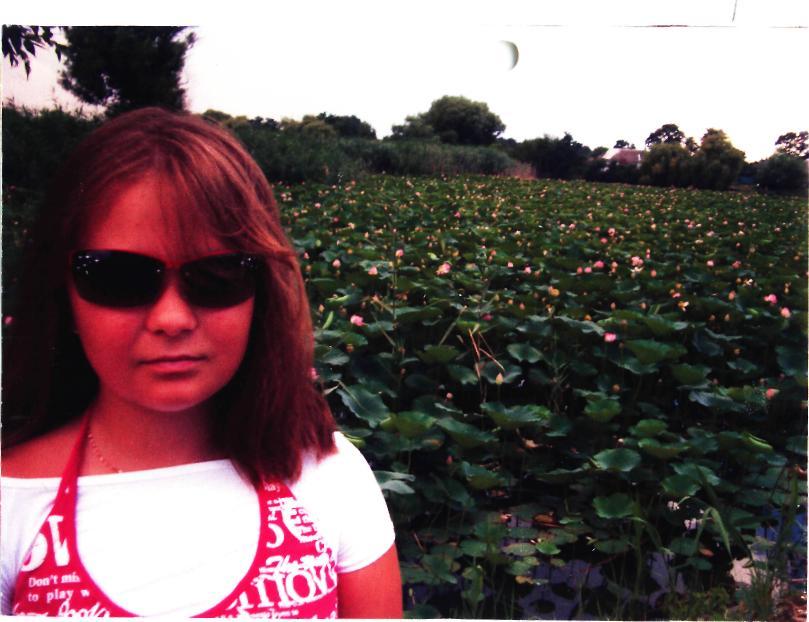
In Anapa there was very warm weather and water and our family swam a lot. And when we went to mountain the great view opened. And we took a lot of the photos. Cheboksary is impressive and interesting city. The river Volga flows near the city. It is very wide and powerful. I enjoyed this city very much. In July I visited the city Cheboksary. It is situated on the bank of the river Volga. This city is big and beautiful. I swam in the Volga and sunbathed. |
| 8. Чтение текста и выполнение задания к нему. T: Now you read the text. The parts of the following text are mixed up. Put them in the right order.
|
| 9. Подведение итогов урока. Домашнее задание. Оценки за работу на уроке.
|
Итоговый урок в 7 классе по теме «Путешествие. Добро пожаловать в Россию»
(Учебник английского языка "Happy English.ru", "Счастливый английский. ру" – Кауфман К. И.)
Цели урока:
познавательный аспект: увеличение объема знаний об особенностях культуры родной страны; знакомство с достопримечательностями Москвы, Коломны;
развивающий аспект: развитие творческих способностей учащихся, способности к сравнению и сопоставлению полученных знаний, способности логически излагать;
воспитательный аспект: осознание понятие «Родина», более глубокое осознание своей культуры;
учебный аспект: развитие речевых умений.
Задачи урока:
совершенствование речевых умений по теме;
совершенствование умений аудирования текста с целью извлечения необходимой информации;
совершенствование умений читать текст с детальным пониманием;
обобщение и систематизация полученных знаний.
Оборудование урока: тематические картинки «Достопримечательности Москвы, Коломны», текст для чтения.
ХОД УРОКА
1. Начало урока. Приветствие. Постановка цели.
Teacher: Good morning, dear children and guests. We are glad to see you at our lesson. Every year a lot of people visit Russia. Our country is fantastic! Imagine that our guests are from different countries. Try to persuade them to visit our native land-Russia.
2. Речевая подготовка (в режиме Т Р1, Р2, РЗ и т.д.)
Т: There are many different reasons for traveling to Russia. Try to name some of them.
Учащиеся заполняют "WORD WEB".
Т: What is the best way to see a country? This question as well as many others you would probably keep in mind if you decided to visit it. Advise your foreign friends about some ways of traveling in Russia.
Pupil 1: I'd like to recommend traveling by... (ship, car, train).
P2: You would travel on foot.
3. Монологические высказывания учащихся по теме.
Т: Let's listen to Kolya's opinion about traveling in Russia.
P2 предлагает различные виды путешествия по России. "Travelling in Russia"
Т: Russia is one of the biggest countries in the world. It has its own symbols, emblems. It is a country of very old traditions. I think that before planning traveling to Russia foreign friends would probably like to get as much information as possible.
Гостям предлагается основная информация о России. Р3—"Russia"
Project "Russia"
P3: Russia is one of the biggest countries in the world. It is situated in Europe and Asia. Its total area is over 17 million square kilometers. The population of Russia is about 150 million people.
Russia has a double-headed eagle as its symbol. It was introduced in Russia in 1497 by Tsar Ivan III.
The national flag of Russia is made up of three stripes: white, blue and red. The white stripe symbolizes nobility and revelation. The blue stripe symbolizes loyalty and honesty. Besides, there are other national symbols, such as St. Andrew's flag and St. George the Victorious. According to old traditions, a guest should always be welcomed with the symbol of life-giving food-bread and salt.
The beauty of the ancient towns, their historical and architectural monuments, the gilded domes of the cathedrals, and the autumnal gold of the forests attract tourists from all over the world.
The singing of chastushkas used to be an important part of Russian rural holidays and parties. In many places they are still popular.
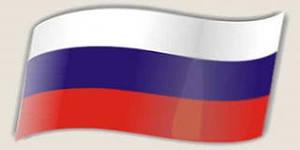
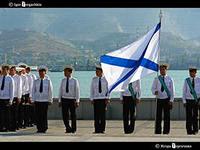

Т: People who plan to travel should decide what things to take. That's why they should know about the weather conditions in different seasons in our country.
О погодных условиях в разное время года рассказывает следующий ученик. Р4—"Seasons in Russia"
Т: Tastes differ, says popular proverb. Every country has its own traditional dishes. What about meals in Russia?
Предлагается информация о традициях приема пищи в России и традиционных русских блюдах. Р5—" Russian Meals"
Т: What Russian dishes would you advise your friends? Why?
Р1: I'd advise blini. They are tasty.
P2: I'd recommend okroshka. It's fantastic. Etc.




T: Traditions. They make a nation special. To my mind many foreigners come to Russia to learn about our traditions and to take part in a celebration.
Предлагается информация о некоторых русских праздниках. Р6—"Holydays in Russia"
Project "Holidays in Russia"
P6: There are some special dates and events in the life of our country.
These dates are: Victory Day, May Day, Constitution Day, and Independence Day. These are national holidays. The most memorable date is Victory Day. It is celebrated on the 9th of May. On this day we celebrate the anniversary of the victory over fascism in the Great Patriotic War.
May Day is celebrated as the day of solidarity of the workers of the world.
Women's Day, celebrated on the 8th of March, Is like Mother's Day in Great Britain.
Some holidays are of religious origin. They are Christmas and Easter. In Russia Christmas is celebrated on the 7th of January. At Christmas people celebrated the birth of Jesus Christ Easter symbolizes the resurrection of Jesus Christ.
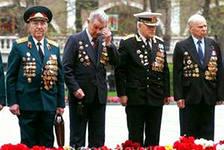

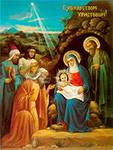
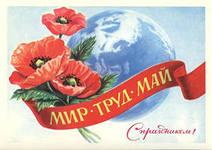
Т: There are many places to see in our country. What cities would you advise your friends to visit in Russia?
Следующий ученик рассказывает о нашей столице. Р7 —"Moscow"
Т: What sights of our capital would you recommend to the foreigners?
Учащиеся предлагают "иностранным гостям"осмотреть достопримечательности столицы.(режим работы Р1 Р2, Р3Р4, Р5 Р6)
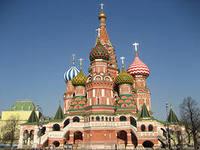
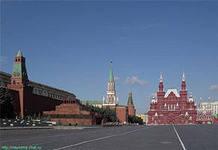
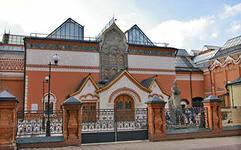
3.Чтение текста с целью детального понимания прочитанного.
T: I think that we can invite foreign friends to our town and region and show them the beauty of our nature, the riches of our land and hospitality.
T: Let's read the text: "Our native town—Kolomna" very attentively. Try to get as much information as possible.
Затем учитель задает вопросы по содержанию текста.
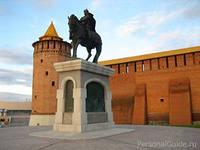

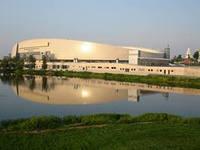
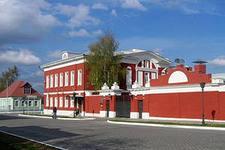
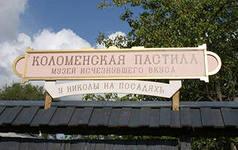

Т: Now you know many interesting facts about our country and our foreign friends have got some useful information about it.
4. Заключительный этап урока.
T: Thanks for your work. Your marks are.... Write down your homework:.... See you on.....
Подведение итогов урока. Домашнее задание.


































































